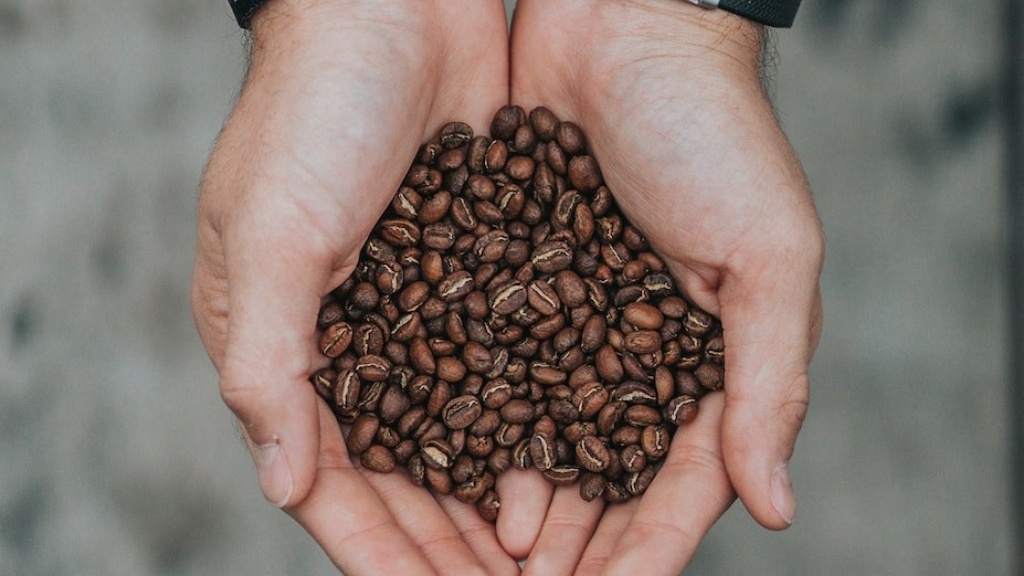Breastfeeding is essential for giving your new baby the best start in life, but many new moms have questions about when and how to drink coffee while breastfeeding. Knowing when it’s safe to consume caffeine can help prevent any potential issues for both you and your baby. While moderation is recommended, understanding the facts can help you make an informed decision.
Caffeine is a natural stimulant found in coffee, tea, chocolate, and some over-the-counter medications. Caffeine has a very long half-life, meaning it can stay in your body for up to 12 hours. This means that when you consume caffeine, it can be transmitted to your baby through your breast milk.
The good news is, it is perfectly safe to consume moderate amounts of caffeine while breastfeeding. According to the American College of Obstetricians and Gynecologists, it is safe for breastfeeding mothers to consume up to 300 mg of caffeine per day, which is about two to three cups of coffee. However, it is best to avoid caffeine near bedtime, as it can have a stimulating effect on babies.
In addition, caffeine can affect the taste of your breast milk, which can make it difficult for a baby to drink. Some babies may become overtired or fussy due to the stimulating effects of caffeine, so it’s important to pay close attention to your baby’s behavior. You should also take care to monitor your caffeine consumption, as too much can cause insomnia, irritability, and other health issues.
If you are concerned about how much caffeine you are consuming, or if your baby is having a reaction to your consumption, it is best to talk to your doctor or midwife. They can help you determine the best course of action for you and your baby.
It is important to note that different teas and coffees can have different levels of caffeine, so it is important to check the labels and opt for decaffeinated varieties whenever possible. Keep in mind that caffeinated beverages are not the only possible source of caffeine, as chocolate and some over-the-counter medications can also contain caffeine.
Recommendations for Replacing Caffeine with Healthy Alternatives
There can be advantages to reducing or replacing caffeine with other healthier options. Replacing coffee or tea with herbal or fruity teas can provide important nutrients and antioxidants that can help boost your energy levels and nourish both you and your baby. Since tea and herbal infusions are usually decaffeinated, they are much safer to consume while breastfeeding.
Replacing caffeinated beverages with water can also help reduce fatigue and dehydration, both of which can be a problem for breastfeeding moms. Studies have found that dehydration can cause a decrease in milk supply, so drinking plenty of water is essential for keeping your body and your baby healthy.
You can also replace caffeine with herbal supplements that are specifically designed for nursing mothers. These can be found in most health food stores and contain natural ingredients such as vitamins, minerals, herbs, and even probiotics, which can support healthy lactation. While supplements are not intended to replace caffeine, they can help reduce its effects.
Neonatal Abstinence Syndrome
It is important to note that consuming too much caffeine while breastfeeding can cause a condition called Neonatal Abstinence Syndrome (NAS). This occurs when a baby experiences withdrawal symptoms due to the effects of caffeine from the mother’s breast milk. Symptoms of NAS can include irritability, difficulty sleeping, and excessive crying.
Long-term studies have found that too much caffeine can also lead to higher rates of colic, acid reflux, and nursing difficulties in babies. In addition, consuming too much caffeine can have a negative effect on milk production. It is important to be aware of the potential risks and to consume caffeine in moderation.
Tips for Moderating Caffeine Consumption for Nursing Mothers
When it comes to drinking coffee and other caffeinated beverages while breastfeeding, moderation is key. Here are some tips to help you stay within the recommended guidelines:
- Stick to two to three caffeinated beverages per day, including coffee and tea.
- Avoid caffeine near bedtime, as it can have a stimulating effect on babies.
- Check labels on beverages to be aware of caffeine content, and opt for decaf versions of coffee and tea if possible.
- Replace caffeinated beverages with herbal teas or decaf tea and coffee for extra nutrition.
- Consume water throughout the day to stay hydrated and support nursing.
- Talk to your doctor or midwife if you have concerns about caffeine consumption.
The Safety of Adding Caffeine to Your Diet After Weaning
After weaning, it is perfectly safe to add caffeine back into your diet. However, it is important to consume it in moderation and avoid drinking too late in the day, as it can interfere with sleep. By understanding the facts about caffeine and breastfeeding, you can make an informed decision about when and how to drink caffeine while nursing.
Caffeine and Lactation Performance
Studies have found that consuming caffeine can have an effect on a mother’s lactation performance. In general, more caffeine intake has been linked to a reduction of milk supply in the short-term. However, the effects of caffeine on lactation performance are not consistent, and more research is needed in this area.
For mothers who wish to reduce their caffeine intake, there are many alternatives. Herbal teas, decaf coffee and tea, and naturally caffeine-free beverages are all great options. Talk to your doctor or midwife to get the specifics on how much caffeine is safe to consume while breastfeeding and how to reduce your intake to stay within the recommended guidelines.
Caffeine and Health Concerns
In addition to the effects of caffeine on lactation performance, research has also found that consuming too much caffeine can lead to a variety of health issues. These can include insomnia, irritability, dizziness, headaches, high blood pressure, and an increased risk of heart disease and stroke.
For those looking to cut down on their caffeine consumption, it is important to recognize that it is possible to be dependent on caffeine. If you find yourself drinking more than three cups of coffee per day, you should consider reducing your intake. Talk to your doctor for personalized advice and tips on how to wean off of caffeine.
Effects of Caffeine on a Baby’s Sleep
Finally, it’s important to be aware of the potential stimulating effects of caffeine on babies. Too much caffeine can cause babies to become overtired or fussy, and can make it difficult for them to fall asleep. This is why it is important to avoid consuming caffeine near bedtime.
Some moms may find that their babies are sensitive to even small amounts of caffeine. As always, if you have any concerns about your baby’s behavior or your caffeine consumption, talk to your doctor or midwife. They can help you come up with the best strategy for both you and your baby.




